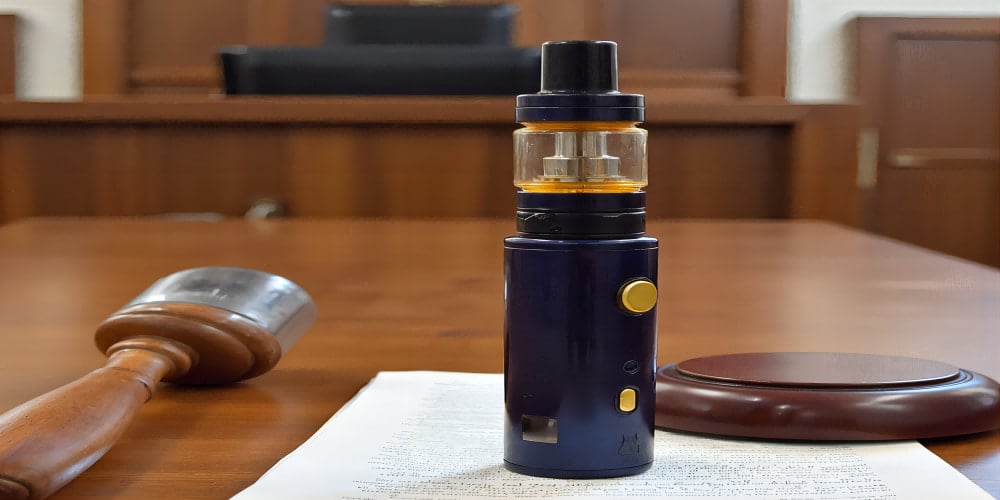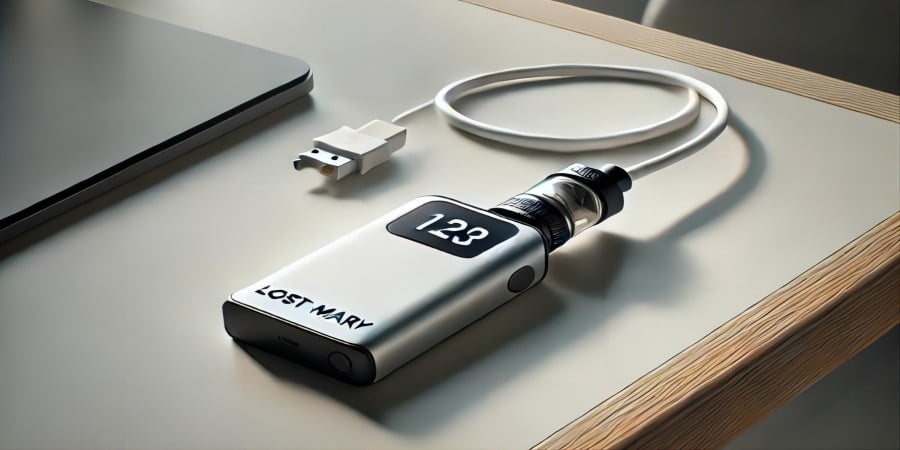In recent years, vaping has become a popular alternative to smoking, with millions of people worldwide using e-cigarettes or vape pens. While the devices are generally accepted in many public spaces, their use in specific settings—such as courthouses—can be a bit more complicated. As public spaces, courthouses are governed by a strict set of rules regarding what is allowed inside, with an emphasis on safety and security. So, the question arises: Can you bring a vape to court? This article explores the various factors and regulations surrounding vaping in courthouses, providing a clearer understanding of what you can and cannot do when attending court proceedings,
Courthouse Security: What’s Allowed and What’s Not?
Before diving into the specifics of bringing a vape into court, it’s important to understand that courthouses are highly regulated spaces. They are among the most secure public buildings, often subjected to rigorous security checks, especially due to the sensitive nature of the proceedings taking place.
Security personnel at courthouses typically screen all visitors as they enter the building. Depending on the jurisdiction, this screening process may involve metal detectors, x-ray machines, or manual searches of bags. The list of prohibited items is generally extensive and includes weapons, sharp objects, and substances that could be used to cause harm. This list often includes:
- Firearms and ammunition
- Knives, including small pocket knives
- Aerosol cans
- Large bags or containers
- Items that could potentially be used for disruptive behavior (such as alcohol or illicit substances)
To learn more, for vapers in California, you can visit this article Courthouse Security Rules from Superios Court of California.
Vaping devices, such as e-cigarettes, vape pens, and other related accessories, typically do not fall under these categories. However, the way they are perceived can vary from courthouse to courthouse. Some courthouses may view e-cigarettes as a potential safety concern due to their resemblance to other, more dangerous items. As such, it is always wise to be prepared for scrutiny when bringing such a device to court.
Vaping Devices in Court: What to Expect
While there’s no universal ban on vaping devices in courthouses, certain factors must be considered when deciding whether or not to bring one with you. The primary consideration is that most courthouses prohibit the use of vaping devices on their premises. This is in line with the general prohibition on smoking in most public spaces. Vaping devices are often categorized similarly to smoking, and their use is not permitted inside courtrooms or other sensitive areas. Here’s why:
1. Health and Safety Concerns
Many courthouses have policies designed to protect the health and safety of all individuals inside the building, including employees, jurors, and the public. The presence of any form of smoke or vapor can be disruptive and even pose health risks for individuals with respiratory conditions. As such, courts follow similar rules to those governing smoking: if smoking is banned, vaping often is too.
We have written an article Do Vapes Explode? You can read it if you are interested.
2. Disruption During Proceedings
Courthouses are formal environments, and any behavior that could disrupt proceedings—whether it’s loud talking, using a phone, or even vaping—may be considered inappropriate. This can be especially true in courtrooms, where maintaining a serious and professional atmosphere is critical. Vaping devices, which produce a visible vapor, could easily disrupt proceedings or cause distractions. For this reason, most courthouses will enforce strict “no vaping” policies within their buildings.
3. Misuse and Security Concerns
Though rare, vaping devices could potentially be misused. They may be mistaken for a weapon or another dangerous object due to their appearance. In some cases, e-cigarettes have even been found to contain illegal substances, which could raise suspicion. For this reason, security staff may confiscate any vaping devices brought into the courthouse if they feel they pose a security risk or violate building policies
What About Those States that Ban Flavored Vapes?
State-Specific Flavored Vape Bans
States like California, Massachusetts, Michigan, New York, and others have banned flavored vaping products, particularly those designed to attract younger users (e.g., fruity, candy, or dessert flavors). However, this ban primarily applies to the sale of flavored e-cigarettes, rather than outright possession. If you already own a vaping device that was legally purchased before the ban or outside the restricted areas, it doesn’t automatically mean you can’t bring it into a courthouse.
However, the courtroom policies and the state’s stance on public health and safety can influence whether vaping devices are allowed or not. Even if you legally possess a vape device (even flavored ones), it’s still subject to strict courthouse security rules
Courthouse Policies on Vaping:
Even in states where flavored vapes are restricted or banned, the courthouse rules are separate from state laws concerning flavored products. Here are some things to consider:
– Prohibited Items List:
Courthouses have their own lists of items prohibited from entering the building. These lists typically focus on weapons or substances that could cause harm. While vaping devices aren’t typically classified as dangerous in most states, some courthouses may still restrict or ban the use of e-cigarettes, particularly in areas like courtrooms or public areas.
– Vaping Restrictions:
In most courthouses, vaping is considered similar to smoking and is thus not allowed in public areas or within the courtroom. Some courthouses may allow vaping in designated smoking areas, but this would depend on the local regulations. Courts may also restrict vaping devices from being used inside the building, regardless of whether the flavored e-cigarette ban is in effect at the state level.
– Security Measures:
Many courthouses have strict security measures, which may include screening your personal items through metal detectors, bag checks, or even X-ray machines. If a vaping device is in your bag or pocket, it may be subject to inspection. In some cases, security personnel might confiscate it temporarily if they believe it poses a risk, or if you are asked to leave it in a designated area
What Happens If You Take a Vape to Court?
If you decide to bring a vape to court, you might be allowed to carry it with you into the building, but the security staff may ask you to leave it in a designated area, such as a locker or an unattended area near the security checkpoint. This is typically true for many other items that are not directly prohibited but cannot be used in the courtroom. For example, large bags or prohibited liquids are allowed through security but must be stowed away during proceedings.
Confiscation at Security:
If you’re carrying a vape device, it may be confiscated at the security checkpoint for inspection. While you may be allowed to keep the device with you, the security staff might ask you to leave it outside the courtroom or store it in a designated area. In certain cases, if the device is flavored and the ban applies to its sale, it could raise questions about whether the device was legally acquired.
No Use in Courtroom:
Even if you are allowed to bring the device into the building, vaping is generally prohibited in the courtroom or other areas within the courthouse. Most courts have strict rules about using any form of tobacco or smoking products, including e-cigarettes, as they can disrupt the proceedings and violate court decorum
Handling E-Liquids and Spare Batteries
If you’re carrying a vape, it’s important to remember that e-liquids and spare batteries might be subject to additional scrutiny. E-liquids are often stored in small bottles, which must conform to the court’s rules for liquid containers. Some courthouses may limit the quantity of liquids you can carry inside, particularly if you’re also traveling through airports or other security-heavy environments.
Spare batteries, often used in vaping devices, can pose another issue. As lithium-ion batteries are combustible, many courthouses—much like airports—have specific rules regarding the transportation of spare batteries. If you’re carrying spare batteries for your vape device, be sure to store them safely in your carry-on bag and check that they’re properly protected from short-circuiting (such as by keeping them in their original packaging or in a battery case)
Alternatives to Bringing a Vape to Court
If you’re required to attend court for a prolonged period, there are a few alternatives you might consider instead of trying to bring your vape device with you:
Leave the Vape in Your Vehicle
If you’re driving to court, a simple solution is to leave your vape device in the car. This avoids the inconvenience of trying to bring it through security while ensuring you have access to it when you leave the courthouse.Use Nicotine Replacement Products
For individuals who use vaping devices for nicotine consumption, there are various alternatives, such as nicotine patches, gum, or lozenges, which can help curb cravings during court proceedings without breaking any courthouse rules.Visit a Designated Smoking Area
Some courthouses might have designated smoking areas outside the building. While vaping isn’t always permitted inside, these areas could allow you to use your device during breaks, provided you follow the courthouse’s smoking policies
Conclusion
When attending court, the general rule is to leave your vape at home or in your car. Vaping inside courthouses is typically prohibited, much like smoking, due to health concerns, security risks, and the potential for disruption. Courthouses are serious environments where professional conduct is required, and allowing vaping could be seen as a violation of this atmosphere. Even though vaping devices themselves may not be explicitly banned in all jurisdictions, it’s essential to be aware of local rules and the specific courthouse’s policies before bringing a vape inside. Always follow security guidelines and be prepared for additional scrutiny of your device.
If you’re a vaper who needs to attend court, consider using nicotine alternatives such as patches or gum, and make arrangements to leave your vape device outside or securely stored. Ultimately, respecting the courthouse’s rules ensures that you’re not only in compliance with the law but also contributing to a safe and respectful environment for everyone involved in the legal process





